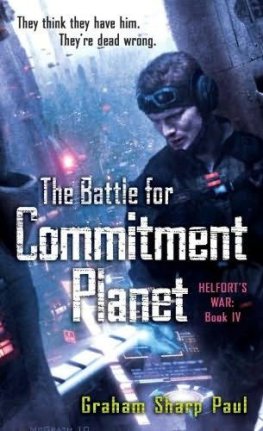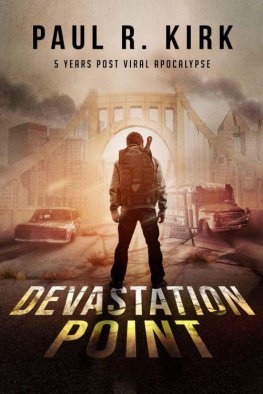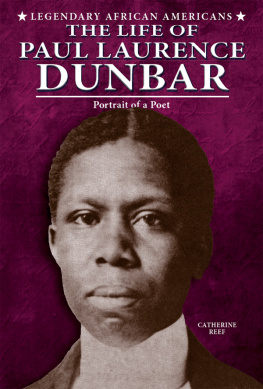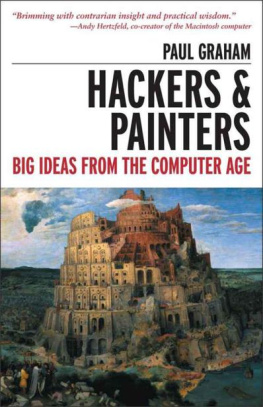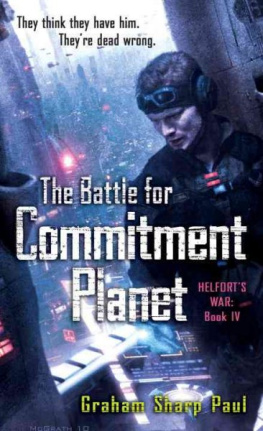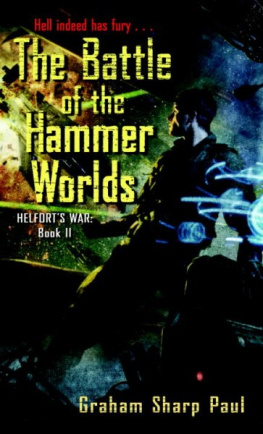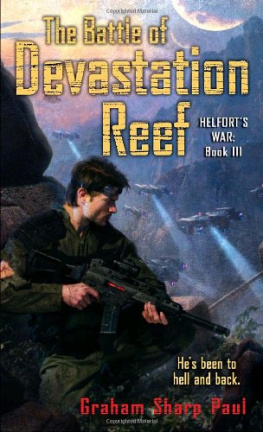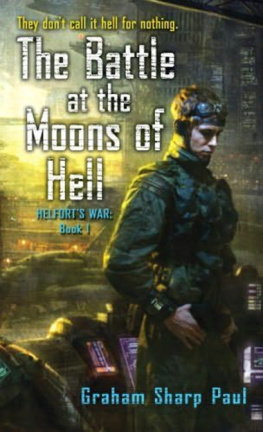Graham Paul - The battle of Devastation reef
Here you can read online Graham Paul - The battle of Devastation reef full text of the book (entire story) in english for free. Download pdf and epub, get meaning, cover and reviews about this ebook. genre: Science fiction. Description of the work, (preface) as well as reviews are available. Best literature library LitArk.com created for fans of good reading and offers a wide selection of genres:
Romance novel
Science fiction
Adventure
Detective
Science
History
Home and family
Prose
Art
Politics
Computer
Non-fiction
Religion
Business
Children
Humor
Choose a favorite category and find really read worthwhile books. Enjoy immersion in the world of imagination, feel the emotions of the characters or learn something new for yourself, make an fascinating discovery.

- Book:The battle of Devastation reef
- Author:
- Genre:
- Rating:4 / 5
- Favourites:Add to favourites
- Your mark:
- 80
- 1
- 2
- 3
- 4
- 5
The battle of Devastation reef: summary, description and annotation
We offer to read an annotation, description, summary or preface (depends on what the author of the book "The battle of Devastation reef" wrote himself). If you haven't found the necessary information about the book — write in the comments, we will try to find it.
The battle of Devastation reef — read online for free the complete book (whole text) full work
Below is the text of the book, divided by pages. System saving the place of the last page read, allows you to conveniently read the book "The battle of Devastation reef" online for free, without having to search again every time where you left off. Put a bookmark, and you can go to the page where you finished reading at any time.
Font size:
Interval:
Bookmark:
Graham Sharp Paul
The battle of Devastation reef
Friday, August 4, 2400, Universal Date
Comdur Fleet Base
The nightmare roared out of the darkness.
He had to get clear. If he stayed, he would die, incinerated in the hellish blast of a runaway fusion plant, his body vaporized into a ball of incandescent gas expanding into space. Panic tore him apart, and he started to run. Hammer missiles and rail-gun slugs ripped the heavy cruisers fabric, and the huge ship died around him. Beneath his feet, the tangled bodies of dead spacers carpeted the deck, but the harder he ran, the less progress he made. He was getting nowhere: unable to breathe, lungs afire, legs refusing to work properly, mouth open in a soundless scream. And there, in front of the lifepod, between him and safety, stood Detective Sergeant Kalkov, eyes bulging, face a hate-twisted mask drifting in and out of flame-shot smoke, jeering at Michaels frantic efforts to get away, the knife that had killed him held in an outstretched fist, dripping blood to the deck.
The nightmare ended the way it always did.
The ship exploded in a searing flash of white, a ball of raw energy, and he woke up, his body wrapped in tangled sheets. For a long time, he lay there sweat-soaked, chest heaving, heart racing, the face of the Hammer police sergeant he had killed during his escape after the loss of the Ishaq still burning in his minds eye.
Forcing himself out of his bunk, he went over to the washbasin to clean the sweat off his face, the water so cold that it stung. He peered at himself in the mirror.
You look like shit, Lieutenant Michael Helfort, he said aloud. His face stared back from wide-set hazel eyes sunk deep in gray-framed sockets and underscored by dark bags. His skin, normally tanned to a rich brown, stretched ashen and washed out, tightened by stress across well-defined cheekbones, his lips clamped shut, thin and bloodless. His hair, overlong and unruly at the best of times, spiked into a tangled mess, sweat-darkened from brown to black.
It was true: He looked like shit. He sighed despairingly. He decided not to waste time trying to sleep. Invariably it eluded him after the Ishaq nightmare, so he hunted around the net to see what the holovids offered; he preferred to watch the dross they churned out. Even that was better than picking over the ghosts from his past.
Here we go, he thought finally. One of the better news channels had a segment dealing with a report from one of the Federations think tanks on Space Fleet. Should be worth a look, he decided; comming micropayment-he was in no mood for advertisements-he pulled the item off the net. When the program anchor, Thad Horung, appeared, he put his feet up to watch.
and our thanks to Johanna Morgenstern for that report from the Frontier Planets, Horung said. Their refusal to support the Federation in the war against the Hammers will continue to be a major headache for this government, and we will of course keep you up to date with any developments there.
Now we turn to the Tesdorf Institute. Yesterday it released its analysis of the long-term effects the Comdur disaster will have on Space Fleet. In a moment, I will talk with retired admiral Orenda Pekefier-Michael groaned out loud; the woman was self-centered, opinionated, and bombastic, traits he did not enjoy-about the key issues the Tesdorf Institute has identified. But first, what are those issues? Ashokan Mokhtar takes up the story.
The holovid cut to Mokhtar, a tall and impeccably dressed man standing in front of an imaginative re-creation of the Comdur disaster, all fireballs and tumbling Fed ships. Michael winced; it bore little resemblance to the awful day when Hammer missiles carrying antimatter warheads destroyed the Federated Worlds fleet at the Battle of Comdur.
Thank you, Thad, Mokhtar said. The Tesdorf Institutes report is an impressively detailed document. Reading it through-you liar, Michael mouthed; an underpaid research hack had that thankless task-one issue stands out, the radical changes forced on Space Fleet by the loss of so many experienced personnel at Comdur and, in particular, the development of what we understand Fleet is calling dreadnoughts. These-
Shocked, Michael sat bolt upright. The fact that dreadnoughts existed was one of the worst kept of Fleets many secrets. In itself, talking about them was not a problem. But spelling out in detail what Fleet had done to convert its heavy cruisers to dreadnoughts: massively upgraded ceramsteel armor, crews cut to a handful of spacers, their air groups, landers, and marines removed, all unnecessary equipment torn out to reduce mass? For the Hammers to discover all that would be a major disaster. Even they could work out what the enhancements had created: a warship orders of magnitude tougher and more maneuverable than any conventional heavy cruiser, a warship-the only warship in humanspace-able to withstand antimatter weapons, the Hammer weapon that had wreaked such havoc at Comdur.
All traces of tiredness gone, Michael listened intently to Mokhtar.
ships are essentially heavy cruisers with skeleton crews. No surprises there-we know Fleet is critically short of experienced spacers after their losses at Comdur-except for one very disturbing fact. Sources inside Fleet have confirmed that some of these dreadnoughts will carry no human crew at all, a development the Tesdorf Institute says is and I quote deeply problematic for the future of Space Fleet, prejudicial to the security of the Federated Worlds, and potentially a breach of the Dakota System Treaty, which prohibits the use of self-replicating machines. Those are very serious charges, and we will explore them with Admiral Pekefier in some depth. Clearly, Fleet faces these and many other challenges at the present time, one of which must be whether or not Admiral Martha Shiu is the woman to lead Space Fleet at this critical time. The institute also identifies
By the time Horung wrapped up the segment, Michael was relieved to see that the Tesdorf Institute had no inkling that the dreadnoughts were such a breakthrough: game-changing ships intended to shift the strategic balance away from the Hammer of Kraa back to the Federated Worlds. Pekefier had spouted a great deal of verbiage about the implications of reducing crew size, the risks created by Fleet operating unmanned cruisers, the Dakota System Treaty, and so on, but that was all. Most of what the institute said was ax grinding by somebody unwilling to accept that conventional starships with large crews might no longer be the future of space warfare, a well-placed and senior Fleet officer most likely. Clearly, Pekefier knew nothing substantive about dreadnoughts, nor had she worked out the threat they posed to the Hammers. As far as she was concerned, dreadnoughts were just heavy cruisers with no crew. So much for your much-prized insights, Admiral, Michael thought as he listened to her rambling on.
And yet, buried in all that talk was the real issue, a truth that Horung and Pekefier had missed.
Michael understood the concerns of the Tesdorf Institutes anonymous source: Dreadnoughts were a problem for some. They required much smaller crews; that meant a smaller Space Fleet. They threatened too many vested interests. They jeopardized too many entrenched positions. They imperiled the aspirations of too many ambitious officers, of whom Fleet had no shortage. So why would anybody be surprised by the response they evoked? Of course so many reacted viscerally. Dreadnoughts tore away the assumptions that underpinned the careers thousands of officers had spent decades constructing. For them, and with morale already at an all-time low after Fleets disastrous defeat at Comdur, dreadnoughts became part of the problem, not the solution.
But since when had the concerns of Fleets aspirants, ambitious and petty, self-centered and self-serving, ever been important? Surely only one thing mattered: defeating the Hammer of Kraa?
Font size:
Interval:
Bookmark:
Similar books «The battle of Devastation reef»
Look at similar books to The battle of Devastation reef. We have selected literature similar in name and meaning in the hope of providing readers with more options to find new, interesting, not yet read works.
Discussion, reviews of the book The battle of Devastation reef and just readers' own opinions. Leave your comments, write what you think about the work, its meaning or the main characters. Specify what exactly you liked and what you didn't like, and why you think so.

